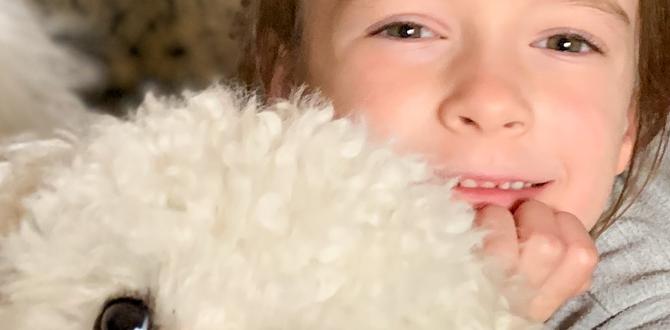Have you ever wondered what your dog does at night? Dogs have unique behaviors when the sun goes down. Sometimes, they sleep soundly. Other times, they might be active and playful. Understanding dog behavior at night fast can help you make them feel safe. Let’s dive into the world of doggy dreams and nighttime adventures!
Key Takeaways
- Dogs may act differently at night than during the day.
- Understanding night behavior can improve your dog’s sleep.
- Fast changes in behavior may signal health issues.
- Dog behavior at night fast is often linked to their needs.
- Nighttime activities can affect your dog’s health and mood.
Understanding Dog Sleep Patterns
Did you know dogs have sleep patterns like humans? Dogs go through cycles of light and deep sleep. They can dream, just like us. Dogs sleep for 12 to 14 hours a day. Most of this happens at night. If your dog is restless, it might be due to its sleep cycle.
- Dogs need a quiet place to sleep.
- Consistent routines help dogs sleep better.
- Check for noises that might disturb them.
- Ensure they have a comfy bed.
- Some dogs may need a nightlight.
- Dogs sleep better after exercise.
- Calm environments aid deep sleep.
When dogs don’t sleep well, they can become cranky. They might bark more or seem upset. It’s important to provide a calm and safe sleeping environment. This helps your dog rest properly and stay healthy. Consider their sleeping arrangement and make changes if needed.
Fun Fact or Stats : Dogs spend 50% of their day sleeping.
Why Do Dogs Dream?
Do you ever see your dog twitching in its sleep? It’s likely dreaming! Dogs dream about playing, exploring, or past experiences. Scientists believe dogs have similar brain waves to humans during sleep. This suggests they might have dreams like people. Isn’t that fascinating?
How Much Sleep Do Puppies Need?
Puppies need more sleep than adult dogs. They can sleep up to 18 hours a day! This extra sleep helps their bodies grow and develop. Puppies burn a lot of energy playing and learning. They need long naps to recharge and stay healthy. Make sure your puppy has a quiet place to rest.
Does Age Affect Dog Sleep?
Older dogs may sleep more than younger ones. As dogs age, they slow down. They tire more easily and need extra rest. You might notice your older dog napping more often. That’s perfectly normal. Ensure they have a comfortable spot to relax. Provide a soft bed to cushion their aging joints.
Reasons Dogs Stay Awake At Night
Sometimes dogs stay awake at night. There are many reasons for this behavior. Your dog might be anxious or bored. Changes in their environment can also affect them. If your dog is restless, try to find out why. Understanding dog behavior at night fast can help you address the issue quickly.
- Check for changes in their routine.
- Consider if they’re hungry or thirsty.
- Look for signs of discomfort.
- Is your dog anxious or stressed?
- Is there too much noise in the house?
- Are they seeking attention?
- Do they need a potty break?
Helping your dog sleep better might involve some changes. Ensure they get enough exercise during the day. Try to keep their routine consistent. Provide comfort items like a favorite toy or blanket. If problems persist, consult a vet to rule out medical issues.
Fun Fact or Stats : Dogs can hear sounds four times farther than humans.
Are Dogs Nocturnal?
Dogs are not naturally nocturnal, but some might seem like it. They can be active at night due to various reasons. An anxious dog might pace the house in the dark. Others might hear something outside and become curious. Understanding your dog’s needs helps balance their activity levels.
How To Calm An Anxious Dog?
If your dog seems nervous at night, try calming techniques. Play soft music or use a white noise machine. These can soothe them. Consider giving them a cozy sleeping area with their favorite blanket. Training and patience can also reduce anxiety. Show them you’re there for comfort.
Can Diet Affect Nighttime Behavior?
Diet plays a big role in your dog’s behavior. Feeding them the right food at the right time is crucial. Avoid giving them a heavy meal right before bed. This can cause restlessness. Instead, provide a balanced diet throughout the day. Good nutrition supports both sleep and overall health.
Nighttime Barking: What It Means
Does your dog bark a lot at night? It’s important to understand why. Dogs bark for many reasons. They might be alerting you to something unusual. Or they might be bored or seeking attention. Understanding dog behavior at night fast can help identify the cause of barking.
- Barking might be due to loneliness.
- Check for noises outside.
- Ensure your dog feels safe.
- Consult a trainer for persistent barking.
- Is your dog hungry or thirsty?
- Look for signs of distress or pain.
- Dogs may bark to communicate.
To manage nighttime barking, address the root cause. Provide comfort and ensure their needs are met. Training can help reduce excessive barking. If your dog continues to bark, it might be time to seek professional help. A trainer can offer valuable advice and assistance.
Fun Fact or Stats : Dogs can bark at 60 decibels, similar to a human conversation.
How To Stop Barking At Night?
Stopping nighttime barking requires patience. First, identify the cause. Is your dog cold or in need of the bathroom? Once identified, address the issue. Use calming techniques like gentle music or a cuddle toy. Consistent training also helps. Over time, your dog will learn when it’s time for quiet.
Do Dogs Bark More In Winter?
Some dogs might bark more in winter. Cold weather can make them restless. They may bark to get your attention. Ensure they are warm enough at night. Providing a cozy space can reduce barking. If they still bark, check for other causes or seek advice from a trainer.
Is Barking A Sign Of Aggression?
Barking isn’t always aggression. It’s a form of communication. Dogs bark to alert, play, or express needs. If the bark sounds threatening, your dog might feel scared. Understanding the different types of barks helps address their behavior. Knowing when to seek help is also important.
Nighttime Habits and Routines
Establishing a nighttime routine is essential for dogs. Routines help them feel secure. A set bedtime helps your dog know when it’s time to rest. Regular routines also improve sleep quality. Understanding dog behavior at night fast can guide you in creating these routines.
- Have a consistent bedtime.
- Provide a relaxing environment.
- Ensure they have toileted before bed.
- Offer a bedtime snack if needed.
- Keep noise levels low.
- Use dim lighting for bedtime.
- Give them a favorite toy to cuddle.
Dogs thrive on routine. It reduces anxiety and promotes calmness. A bedtime routine signals to your dog that it’s time to unwind. Consistency is key, so try to maintain the same routine every night. This helps your dog sleep better and wake up refreshed.
Fun Fact or Stats : Most dogs start settling down around the same time every night.
Why Are Routines Important?
Routines create structure. They offer predictability, which helps dogs feel safe. A consistent schedule reduces anxiety. It helps your dog know what to expect daily. Routines can include feeding times, walks, and bedtime. When dogs feel secure, they’re happier and more relaxed.
How to Create a Bedtime Routine?
Creating a bedtime routine is simple. Start by choosing a bedtime. Stick to it daily. Ensure your dog has had exercise earlier in the day. This helps them settle down. Provide a cozy sleeping area. Use calming activities like gentle petting or soft music before sleep.
Can Disruptions Affect My Dog’s Routine?
Disruptions can affect your dog’s routine. Unexpected events can unsettle them. Try to stick to a consistent pattern, even when things change. If your schedule shifts, help your dog adjust slowly. Patience and understanding are key to maintaining their sense of security.
Table of Common Dog Behaviors
| Behavior | Possible Cause | Solution | Fun Fact |
|---|---|---|---|
| Whining | Attention-seeking | Provide comfort and interaction | Whining frequencies vary by breed |
| Pacing | Anxiety | Calming techniques and routines | Dogs pace when thinking |
| Barking | Alerting or boredom | Training and distraction | Barking is a communication tool |
| Chewing | Teething or boredom | Provide toys and chews | Chewing relieves stress |
Conclusion
Understanding your dog’s nighttime behavior can improve their sleep. By observing dog behavior at night fast, you can ensure their comfort. Consistent routines, proper exercise, and a cozy sleeping environment are key. Address any issues quickly to keep your furry friend happy and healthy.
FAQs
Question: Why does my dog stay awake at night?
Answer: There are many reasons for this behavior. It could be anxiety, boredom, or hunger. Check their environment for changes. Ensure their needs are met to help them sleep better. If problems continue, consult a vet for advice.
Question: How can I make my dog sleep better?
Answer: Create a calm and quiet sleeping area. Establish a consistent bedtime routine. Ensure your dog gets ample exercise during the day. This helps them relax at night. Use comforting items like toys or blankets. If needed, seek professional advice.
Question: Can diet affect my dog’s sleep?
Answer: Yes, diet can impact sleep. Avoid feeding heavy meals before bed. Provide a balanced diet throughout the day. Ensure they have access to water. Proper nutrition supports good sleep and overall health.
Question: What if my dog suddenly changes its night behavior?
Answer: Sudden changes might indicate a health issue. Observe their behavior closely. If changes persist, consult a vet. Fast action can help identify and address potential problems. Keeping track of their habits is helpful.
Question: Why does my dog bark at night?
Answer: Barking can be due to alertness or boredom. Check for disturbances or discomfort. Providing a cozy environment helps. Training can also reduce excessive barking. If unsure, seek advice from a professional trainer.
Question: Can my puppy’s sleep affect its growth?
Answer: Yes, proper sleep is crucial for growth. Puppies need more rest than adults. This supports their developing bodies. Ensure your puppy has a quiet and comfortable sleeping area. Adequate sleep helps them grow healthy and strong.
Meet Elyse Colburn, the devoted canine companion and storyteller behind the enchanting world of “Tales, Tails, and Adventures Unleashed.” A passionate dog enthusiast with a heart full of paw prints, Elyse Colburn shares heartwarming tales and insightful adventures, celebrating the joy, loyalty, and endless antics that make every dog a true hero. Join Elyse Colburn on this tail-wagging journey, where every post is a love letter to our four-legged friends.








